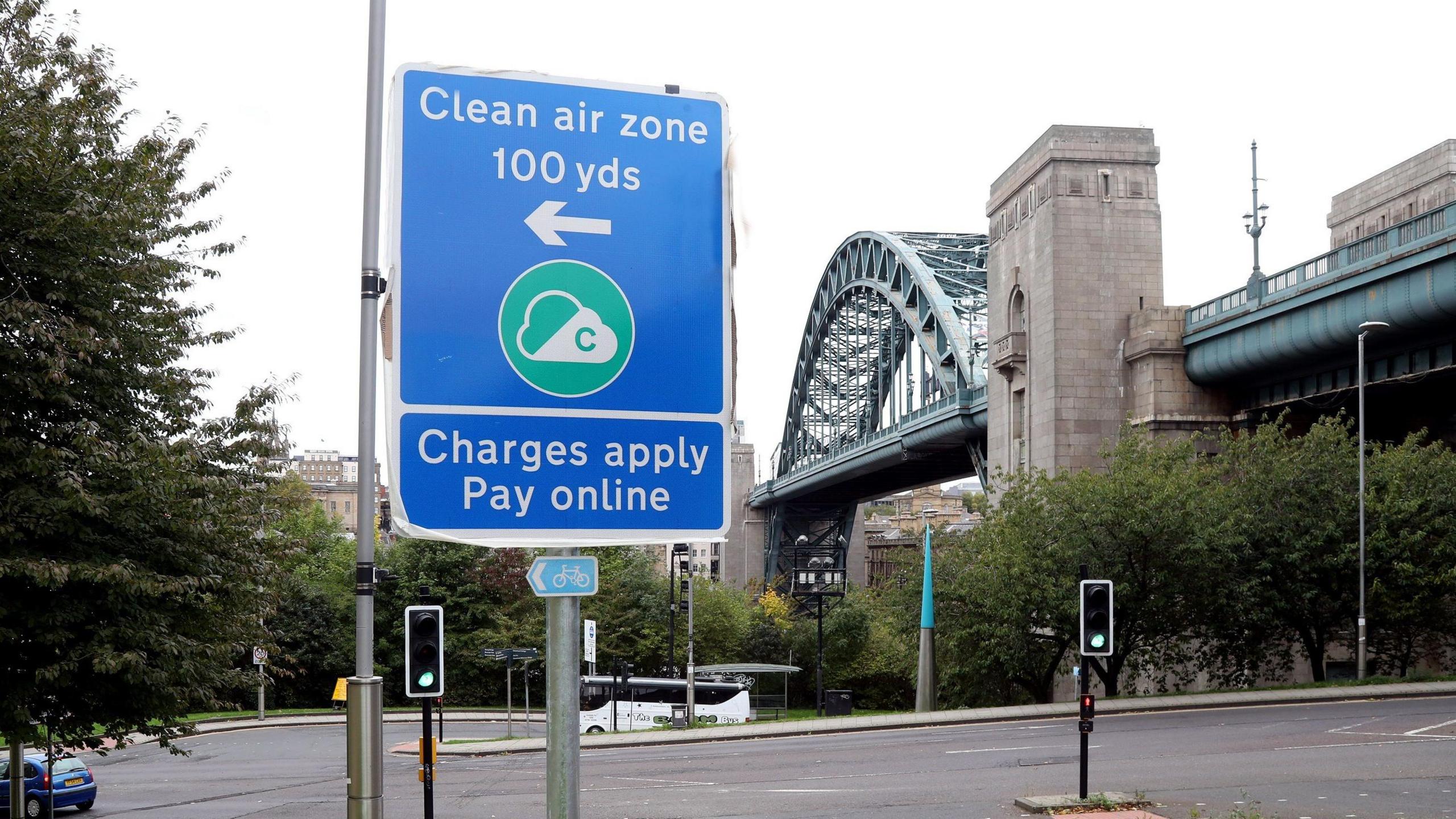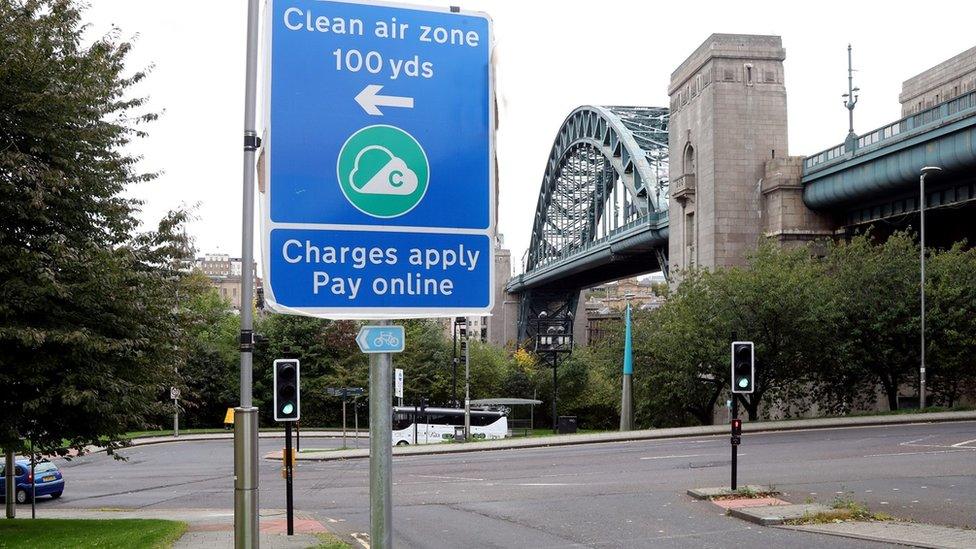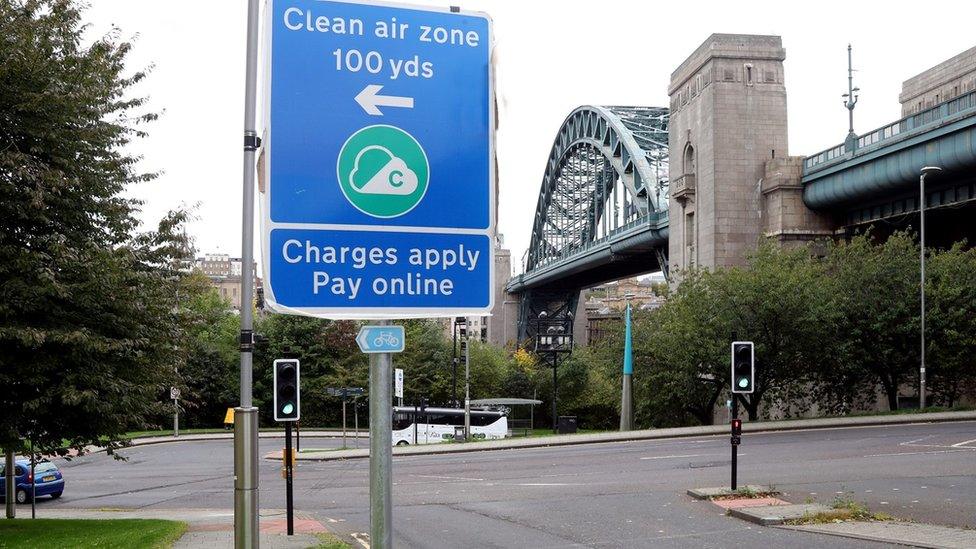More businesses able to avoid Clean Air Zone tolls

Only £2.5m of the £15m grant funding available has been handed out since applications opened in November 2022
- Published
More business owners will be able to avoid Newcastle’s Clean Air Zone (CAZ) tolls thanks to a change in grant funding criteria.
Newcastle City Council , externalis widening its CAZ grant scheme so that more people can get financial support to upgrade to environmentally-friendly vehicles.
Leaders have come under pressure as most of the £15m of grant funding for upgrades is unspent, due to the strict criteria that lots of motorists cannot meet.
A CAZ spokesperson said: “The changes that we’ve made will enable hundreds more local businesses to qualify for funding support towards the cost of a cleaner vehicle."
Previously, applicants had to prove they entered the city centre at least twice a week over a three-month period for business needs, which proved difficult for small traders.
It has meant only 668 vehicles have been successfully upgraded and 1,379 applications were rejected, according to the Local Democracy Reporting Service.
Now, any van, LGV or minibus that does not meet the CAZ’s environmental standards but is registered to a home or business address in Newcastle, Gateshead or North Tyneside will qualify for upgrade funding.
The council estimates that up to 500 residents, businesses, and community groups who were previously unsuccessful in their application will meet the new criteria and be invited to reapply.
But it is not good news for everyone.
Businesses based in Sunderland or Northumberland, who are outside of the set areas but work within the CAZ, are still not eligible for funding.
A spokesperson for CAZ said that funding for grants is "limited" and so they must "prioritise it" for businesses that are "regularly required to operate within the Clean Air Zone".
The council will also not accept applications for retrospective funding.
Related topics
- Published30 January 2024

- Published26 September 2023
